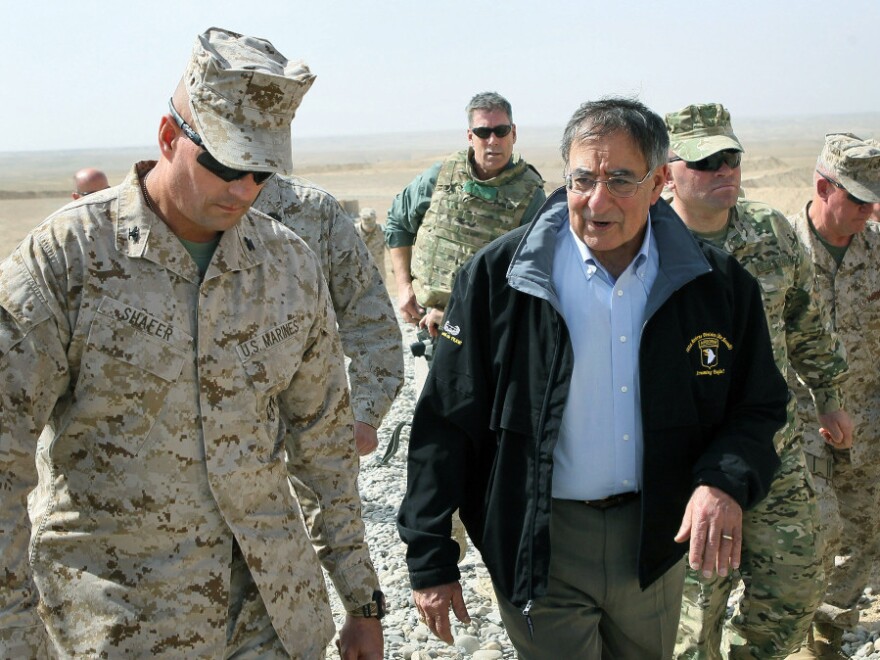The news that the U.S. Army staff sergeant who is suspected of murdering 16 Afghan civilians has been moved to a detention facility in Kuwait is sparking some small protests in Afghanistan.
But a top U.S. commander in the country, Lt. Gen. Curtis Scaparrotti, told reporters today that "this is really about being able to ensure that we can execute this investigation and the judicial proceedings fairly and properly," Reuters says.
NPR's Tom Bowman adds that defense officials say the decision to move the still unidentified soldier "was made by the top commander [in Afghanistan] Gen. John Allen, based on a legal recommendation."
According to The Associated Press, "the U.S. military said the transfer did not preclude the possibility of trying the case in Afghanistan, and Defense Secretary Leon Panetta has said the soldier could receive capital punishment if convicted."
On Sunday in southern Afghanistan, the staff sergeant was seen leaving his base. It's alleged that he went from house to house in a nearby village, killing men, women and children, before returning to the base and turning himself in.
So far, the killings have not sparked as much outrage in Afghanistan as the recent burning of Qurans by U.S. troops who were disposing of some materials on a base near Kabul.
As NPR.org's Alan Greenblatt reports, "analysts say a number of factors" could explain the different reactions — including "the symbolic significance of burning a holy book, Afghan numbness to death after decades of war, the way news travels in a poor, underdeveloped country where many people are illiterate." The New York Times adds that in Afghanistan, "faith is paramount and a death can be compensated with blood money."
Update at 8:05 a.m. ET:
Reuters writes that Afghan President Hamid Karzai "called on Thursday for NATO-led forces to move out of Afghan villages and remote areas" — such as that where the massacre occurred.
According to The Associated Press, Karzai "said Thursday that international troops should pull back from rural areas and villages to main bases and that Afghan troops should take the lead for countrywide security in 2013, a year ahead of the current target date."
Also, Reuters says a spokesman for the Taliban in Afghanistan says it has suspended talks with the U.S. because of the "shaky, erratic and vague standpoint of the Americans."
In related news:
-- Defense Secretary Leon Panetta, who is in Afghanistan, says Wednesday's incident at an air base in the country — in which a man drove a vehicle on to a runway as Panetta's plane was about to land, crashed the vehicle and then ran from it in flames — probably was not an attack aimed at him. The man died overnight, officials say.
-- NPR's Larry Abramson, who is traveling with Panetta, said on Morning Edition that Panetta's conversations with Afghan President Hamid Karzai have been focused in part on "trying to bring down ... tensions" stemming from the killing of civilians and the Quran burnings.
-- Also on Morning Edition, NPR's Quil Lawrence (who is in Kabul) reported that Panetta has repeated the message stated by President Obama and other U.S. officials in recent days — that there's no change in the plan to withdraw American and NATO forces by the end of 2014. But, Quil added, "what they have never said is how fast those ... troops will then be leaving. It's still open that they could speed up the withdrawal as some in the Obama administration are said to prefer, or they could slow it down as some in the military leadership have encouraged."
Copyright 2021 NPR. To see more, visit https://www.npr.org.




